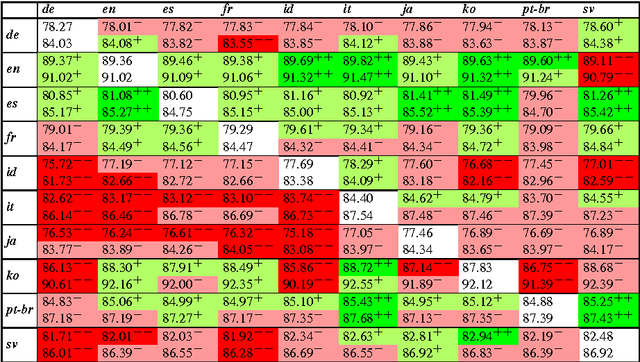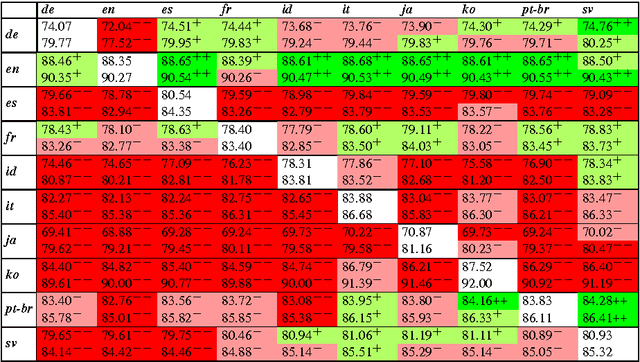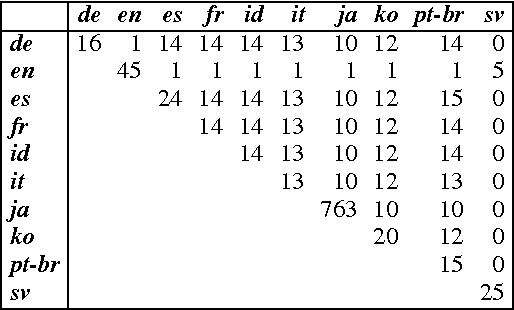One model, two languages: training bilingual parsers with harmonized treebanks
Paper and Code
May 19, 2016



We introduce an approach to train lexicalized parsers using bilingual corpora obtained by merging harmonized treebanks of different languages, producing parsers that can analyze sentences in either of the learned languages, or even sentences that mix both. We test the approach on the Universal Dependency Treebanks, training with MaltParser and MaltOptimizer. The results show that these bilingual parsers are more than competitive, as most combinations not only preserve accuracy, but some even achieve significant improvements over the corresponding monolingual parsers. Preliminary experiments also show the approach to be promising on texts with code-switching and when more languages are added.
* 7 pages, 4 tables, 1 figure
 Add to Chrome
Add to Chrome Add to Firefox
Add to Firefox Add to Edge
Add to Edge